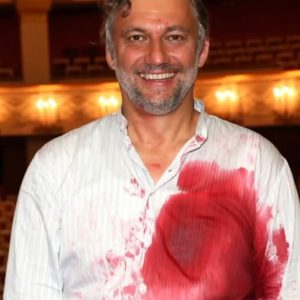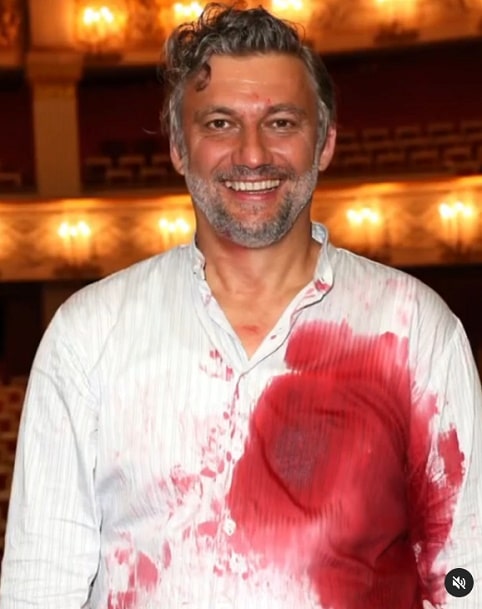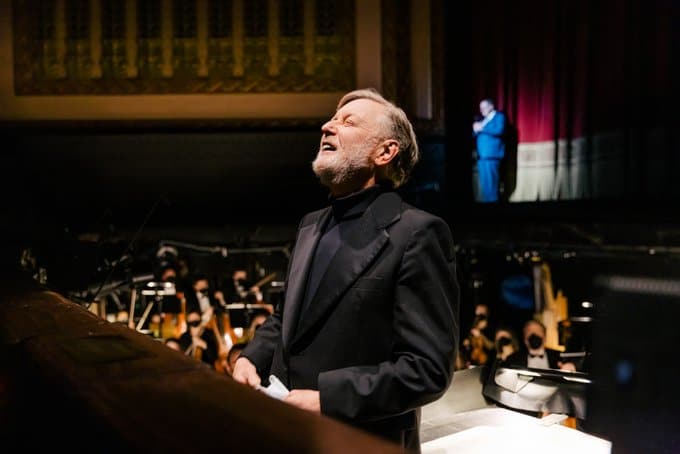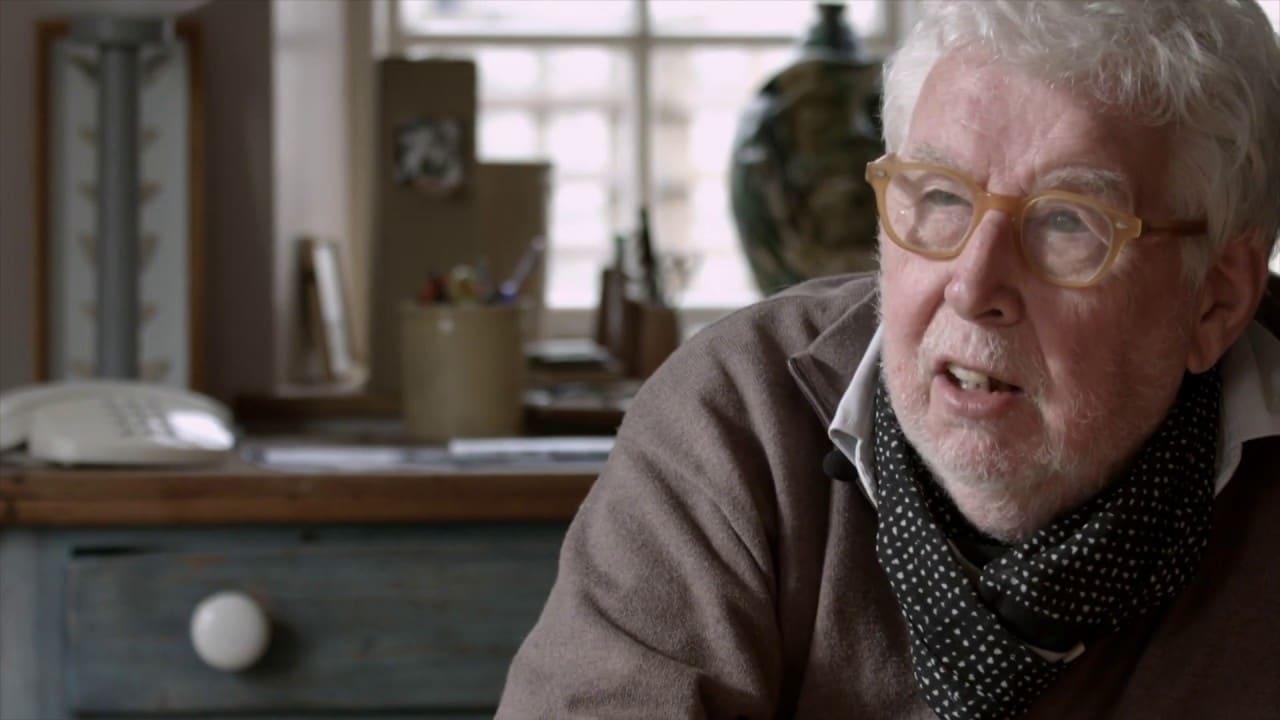Jonas Kauffmann wears his heart on his shirt
NewsFrom the Instagram after-pics at Munich’s Tristan:


From the Instagram after-pics at Munich’s Tristan:

Decca is marking the birth centenary of John…

Statement by the Berlin Phil: It is with…

Andrew had a second coming on record when…

The Last Night that was picketed because Sir…

Session expired
Please log in again. The login page will open in a new tab. After logging in you can close it and return to this page.
One of the problems of the usual outdated postwar ‘modern’ opera productions is that everything is presented as literally as possible, as materialistically as posible, and as shockingly as possible, to leave nothing to the imagination. But this is forgetting that opera is a product of the imagination which does not need such drastic and vulgar depictions. Plot and music are designed in such a way as to carry the viewer/listener into a world of make-believe, far removed from the literalness of daily sordid life. Making everything literal is destroying the effect of the work and especially, of the music – people are shocked by the blood, the sex, the awful looking sets, etc. etc. and at that moment they no longer hear the music and stop exercising their imagination.
It is like replacing a novel by a comic strip. It is juvenile, primitive, and vulgar.
Speak for yourself, and cherish your DVDs of Zefirelli and Schenk.
I always liked Zeffirelli and Schenk staging. But that does not mean that I want every opera, again and again, staged by them.
Nothing against a good, conservative staging every once in a while. But every time? After watching five Parsifals in that vein, you can do the sixths yourself.
I’d much rather be surprised, esp. in mainstream repertoire everyone has seen many times already. Yes, opera and theater are a “product of the imagination” – but not the same imagination over and over again. Give me some Regietheater any day over yet another ‘more of the same’.
An organic production does not mean at all ‘conservative’ or ‘the same imagination over and over again’. Visuals can have a lot of variation. And then, in opera the visuals are not the most important component. You don’t go to the opera to be surprised by the visuals, that merely reveals ignorance about the art form. You go to the opera to be touched by a total work of art about the human condition, and not for some superficial entertainment.
Thank you so much for assuming that I am ignorant and superficial. And for teaching me a lesson why one really goes to the opera. I’ll leave it at that.
Tell us of anyone who is shocked by a Tristan with an open wound. He literally gets stabbed in the chest on stage, and we see him die from this wound over an hour plus of music in the third act. It’s not gratuitous. It’s not overly materialistic. It’s just a choice one could easily justify in the text. And if opera takes us into a place of make believe, sure, one can say we witness this in Tristan in their impossible love. But wouldn’t a bloodied Tristan reinforce the impossibility of this, that no matter how much he can hallucinate about Isolde’s love, the material world may actually claim him?
No, because it is not the visuals which reveal the inner workings of the plot and of the protagonists’ emotional experiences of what is going-on, but the MUSIC. In opera, what we see is the outside of what is happening, and what we hear, is what happens on the inside. That is the point of having opera at all and not a movie or a stage play.
A very simple observation but that balance disappears, or is greatly diminished, with literalness. The best staging is always something between realism and symbolism, avoiding literalness – that is offering enough space for variation.
As for operatic killings: I would give license to a little bit of blood, but not to an entire bottle of tomato sauce as if to scream to the audience: he is WOUNDED! Don’t you SEE?! It is patronizing, as if audiences are too dumb to follow the plot.
It’s all very primitive, really.
You’re my favorite comic strip, John.
Sally
PS
It always reminds me of this:
https://existentialcomics.com/comic/308
Sally
You are totally mistaken!!!
Ópera is all about strong emotions, it is about love pain desire blood, a lot, tears laugh and much more, the list is long, all enhanced by music that induces and relates to these emotions… And that is so for the singers as is for the audience… I have watched opera since I was four and I am 75 and it still moves me in the same fashion… Maestro Kaufmann wears his heart where his heart should be..!
Yes, and which is the thing that makes these emotions resonance with the audience? The visuals? The costumes? The lighting? No, it’s the MUSIC that is the element that gives life to everything that is happening on stage, not the visuals or the tomato sauce.
Wagner disagreed with you. He believed it was a total theatrical experience, of which the music was only one part.
oops, i thought this was a photo of Cavaradossi??? I love my dvd’s of Zeffirelli and Schenk, genuises compared to those sick modern trash directors
To John: it is certainly true that such visual approach can cheapen musical values, and yet the fact is that it does bring younger generations into opera theaters which not only helps the art form survive but still manages to enrich these people’s cultural experience even if they don’t realize it.
To the other JB: here we are all speaking for ourselves only, including you and me.
To “Oh plz”: no one here says that such visuals are not justified or supported by the text, but the point is that in good opera – of which T&I is certainly an outstanding example – the music already does it better and in a more profoundly powerful way than any blood stains ever can.
My favorite operatic productions – regardless of their age – are those that tend toward minimalistic approach, so that the music dominates the proceedings, but I do value “realistic” ones as well for the reasons described above. If it is done well musically, one can always close eyes and just enjoy the aural components of the performance.
Dumbing-down opera for juvenile ignorati does not do any service to the works, it would be better to educate them better beforehand. It is always a misunderstanding to think that art has to adapt to the audiences, instead of the other way around. Art is not a restaurant service….
Of course it would be better to educate them beforehand, but i am talking about the real world we live in – not an ideal one that you and I may prefer. If we can get young people to be interested in fine arts – even if we do that by making it more accessible to them – then there is a better chance that they will also become interested in bringing their children to fine arts by educating them first. In other words, I agree that art does not “[have] to adapt to the audiences”, but a little bit of adapting may actually help art in the long run.